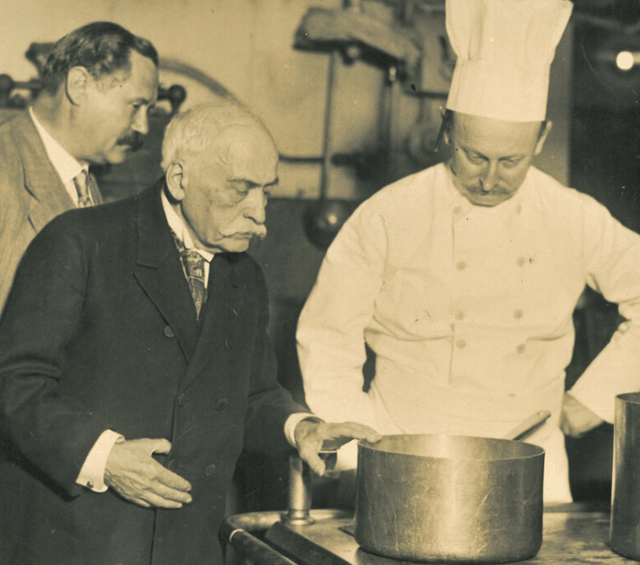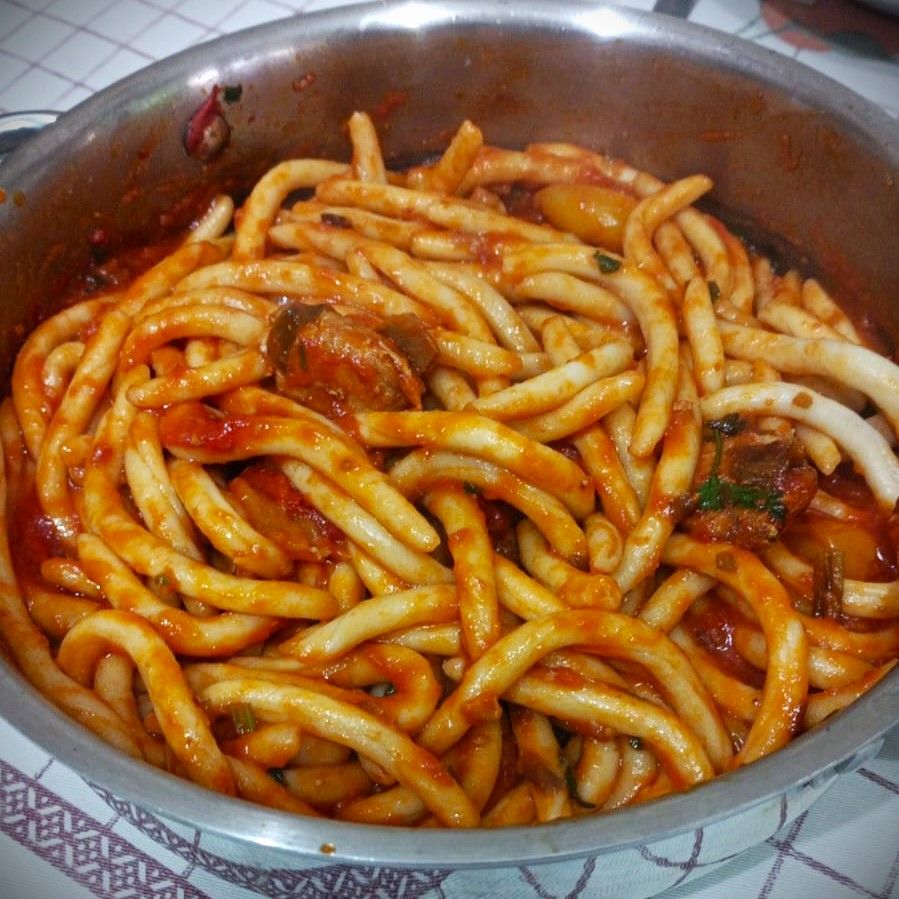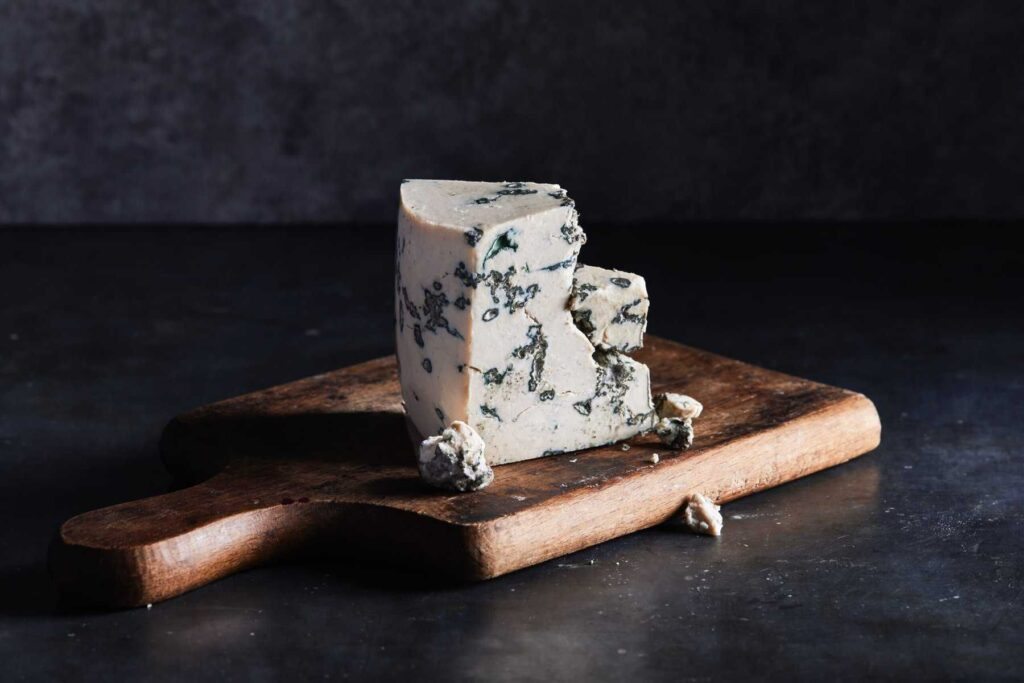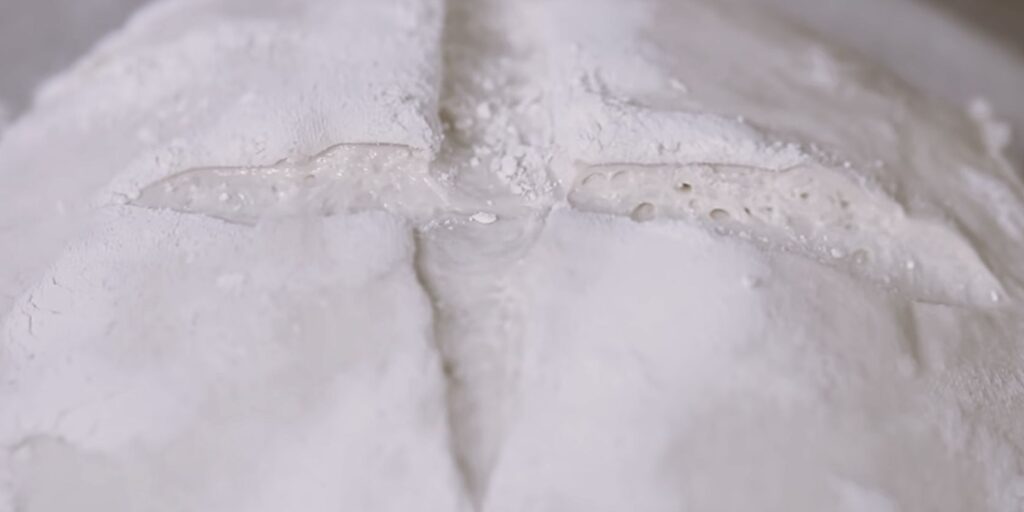Here’s a post about a chef who has perhaps changed the professional catering industry forever: Auguste Escoffier.
Born in Nice, France, in 1846, he too was fascinated by the militarist aura that hovered in France during the empire of Napoleon III, so much so that he served his country, as an army cook, for 7 years.
Dismissed after the disastrous Franco-Prussian War, he started a new adventure with his own restaurant; then the transfer to Monte Carlo and the acquaintance with Mr César Ritz, who took him with him first to Paris, then to the Savoy in London, in his own Hotel, the Ritz in Paris (and finally to the Carlton in London).
What Escoffier left to posterity is his idea of dividing tasks in the kitchen: the brigade de cuisine, the kitchen brigade. Name that if it reminds you of something military, well … you’re right.
Escoffier’s view was to divide tasks and supervisory powers as a rigid military hierarchy.
At the head of all, the Chef de Cuisine, what today would be called “Executive chef” (nowadays tastes lean more towards business terms rather than military ones, apparently), who controls the menus, supplies, the functioning of machinery, employees.
Reporting directly to the Chef de Cuisine, the Sous Chef de Cuisine: the underboss, or the boss’s right-hand man, so to speak.
Following, the chefs de partie, each one in charge of a given sector (fish, soups, meat, pastry …) and responsible for their own team, made up of cooks and commis.
And finally the plongeur, the dishwasher, who certainly did not have to have an easy life (I recommend reading George Orwell’s experience as told in “Down and Out in Paris and London“).
Ah, Escoffier was also embroiled in a scandal, as he accepted bribes from suppliers to purchase their products. But this is a different story…

 Italiano
Italiano













